 Today we welcome author Robert Steven Goldstein to Novels Alive to answer our questions. Welcome, Robert!
Today we welcome author Robert Steven Goldstein to Novels Alive to answer our questions. Welcome, Robert!
What drives your story forward in your books the most, the characters or the plot, or do you feel they are intertwined?
For me, there is a third component—ideas. These ideas may be scientific, historical, metaphysical, sexual, gastronomical, political, or otherwise, but in my novels, provocative ideas are always actively enmeshed. In terms of my creative process, my concept for a novel starts with the characters—they are primary. What those characters will eventually do, and what ideas they will come to examine, will ultimately emerge from the characters’ personalities.
If you were a character in one of your books, which would you be? The protagonist, mentor, villain, love interest, etc.?
As is generally true in life itself, my novels don’t tend to have characters who can be so easily labeled or categorized. My books are mostly populated by people who are facing challenges, and who are to some greater or lesser extent dysfunctional with respect to dealing with those challenges, but who are seeking to overcome that, and who strive to sustain a sensibility that is more gratifying and hopeful. Having said that, if I were a character in some author’s book where the characters were more explicity categorized, I could possibly see myself as a protagonist or mentor—certainly not a villain—and perhaps a love interest, but only for a singularly quirky and skewed woman.
If you had the power to make any of your books into a film, which would it be and why?
That would be quite a power! My novel Enemy Queen, which was published in 2020, would make for an uproariously humorous film—a sort of sexual comedy of manners. But I think my most recent novel, Cat’s Whisker, which just published in October 2021, is a much more probing and ambitious tale—maybe more than could fit comfortably in a movie—but I believe Cat’s Whisker would make a splendid five or ten episode mini-series.
Is there a particular genre of fiction that you have always wanted to write, but haven’t yet tackled?
One of the problems I’ve always run into with agents, publishers, reviewers, and retailers is that my books don’t conform to any given genre. It is rare, for instance, to find awards for cross-genre fiction, but the book I wrote last year, Enemy Queen, was a finalist for an award in an international contest with precisely that category. My most recent novel, Cat’s Whisker, has been classified by various industry professionals as literary fiction, or spiritual fiction, or erotic fiction. One might be hard pressed to make sense of that! I think our society seeks neat labels for simplicity and marketing purposes—but it doesn’t seem to me that life in general truly fits into such tidy compartments.
If you could meet a literary character or author, who would you most like to meet?
John Steinbeck was an author whose work has moved me greatly. He also seemed to be a thoughtful, down-to-earth fellow, with interesting ideas and far less ego than a writer of his stature might be expected to display. A fine example of this is his relationship to Hemingway, who often put Steinbeck (and other authors) down in an attempt to promote his own standing in the writing hierarchy. Steinbeck did not engage in such behavior, but once, when asked directly about Hemingway’s work, Steinbeck politely said this: “In my time, Ernest Hemingway wrote a certain kind of story better and more effectively than it had ever been done before. He was properly accepted and acclaimed. He was imitated almost slavishly by every young writer, including me, not only in America but in the world. He wrote a special kind of story out of a special kind of mind and about special moods and situations. When his method was accepted, no other method was admired. The method or style not only conditioned the stories but the thinking of his generation. Superb as his method is, there are many things which cannot be said using it. The result of his acceptance was that writers did not write about those things which could not be said in the Hemingway manner, and gradually they did not think them either.”
As with the rest of us, you have a real life to live. So, in your most recent book, what was happening in your life and how did it influence your writing?
My “most recent” novel, Cat’s Whisker, which published in October 2021, is in truth, not all that recent. I actually completed it in 2016, and have written two other novels since (one, Enemy Queen, was published last year, and another, Will’s Surreal Period, is queued up to publish in June 2022). Meanwhile, what’s been happening in my life recently, is pretty much what’s been happening in everybody else’s life—a worldwide Covid-19 pandemic. And while the pandemic has wreaked havoc for everyone, including myself and my family, it might actually have helped me finally find a publisher for Cat’s Whisker. The primary theme in Cat’s Whisker is the rift between science and spiritualty—and whether that rift is ultimately bridgeable. When I shopped the book to agents and publishers back in 2016 and 2017, that theme didn’t resonate with any of them as particularly marketable. But when I tried again about a year ago, when the pandemic was raging, and our society was ripped between people trying to follow the advice of doctors and scientists, versus people who were anti-vaccination and anti-mask for political or religious reasons, the theme of Cat’s Whisker suddenly seemed relevant, and the book found a publisher fairly quickly.
Was there something in your first edit that didn’t make it in the final copy that you sometimes wish you would have kept?
Precisely the opposite! Editors are important and skilled people, who make invaluable contributions to the quality of a book, and need to be recognized as such. I always believed that, but now I have proof. There was one brief segment in my latest novel that my editor insisted we delete, because she thought that some people might find it offensive. She asked me to write a new segment, from scratch, to replace it. I understood her reasons, and agreed with them, and rewrote the segment without argument. Months later, when pre-publication copies were being circulated to critics for reviews, there was an error with version control in one instance, and a copy of my book with that original, now deleted segment, accidentally found its way into the hands of a single reviewer. Sure enough, that reviewer wrote a less than favorable review, and cited that one segment specifically for doing so.
What do you do to prepare your mind to write? To get into the mind of your characters.
I find the best preparation is to reread what I’ve written in the past day or two. That invariably gets me into the flow of the prose, and the minds of the various characters. I recall an interview, years ago, with the author, Norman Mailer—he said that for him, the most difficult thing about writing a novel was to sit down every day, for a year or more, and try to get into the same stylistic mindset, no matter how he himself was feeling that day. Mailer was known for having a somewhat volatile personality, whereas I tend to be pretty even-tempered and consistent—but even so, reading what I’ve written in the past couple of days tends to lure me, quite reliably, into the sensibility I need to to write more pages and keep the novel’s tone, and the personalities of the characters, consistent.
What book as a child/adolescent most influenced you as a writer?
I started reading adult novels fairly early, maybe age twelve or thirteen. Prior to that, I read lots of children’s books. But I think the actual liaison for me, between the two, was the series of Tarzan novels by Edgar Rice Burroughs. He wrote twenty-four of them, and I believe I read eighteen or nineteen before I graduated to more adult fare. But those novels seemed to me, at the time, very evocative and engrossing. I haven’t revisited them in decades—they may well seem silly, and undoubtedly politically incorrect, today. I remember one, though, in particular, that used a narrative technique I had never before encountered, and it seemed stirring to me—two parallel stories were related in alternating segments (one story was about Tarzan, the other about his young-adult son Korak who had gone missing)—when the two stories finally converged it was electrifying. Even at that age, I knew I wanted to write novels, and that was an edifying technique to learn about.
How much research went into your last book?
A good deal of research went into Cat’s Whisker, but truthfully, I feel a bit guilty even mentioning it. Research of the sort I was doing is just so easy now. I keep a window open on my computer screen running Microsoft Word for the actual writing, and a concurrent browser window open where I can use Google to find instant information on anything I need to research. I was born in 1952, and I remember as a kid, when I needed to do research for a report for school, it meant walking several blocks to the library, where I spent hours combing through encyclopedias and reference books, and taking copious notes. Compared to that, the type of research I do today is nearly effortless.
What’s one of the most important things you’d like your readers to know about you? What defines you most as an author?
Books have always seemed sacred to me. As a child, I recall seeing books as things to be revered—they held and transmitted the learnings and perspectives of our culture. That, in part, is why I waited until I was fifty-six to start writing full time—for me, books are not products to be marketed and sold like clothing or cars—I wanted to be sure that I was sufficiently financially secure to write novels that were meaningful to me, without worrying whether my stories conformed to current commercial trends.
What is one thing about you that may surprise your readers?
I am seen by some as a bit of a contradiction. Prior to becoming an author, I was a corporate vice president in the healthcare industry. But, I have also assiduously practiced yoga, meditation, vegetarianism, and compassionate living for over fifty years. I found ways to successfully bring my spiritual perspective to the corporate boardroom, though I confess that I was generally alone in doing so, and my approaches were often viewed with great skepticism.
Can you tell us what prompted you to write your latest release?
About six years ago, I read an article that shocked me. It stated that in many parts of the United States, the percentage of people who accepted Darwin’s theory of evolution was lower now than it had been fifty years earlier. Most of the people who rejected evolution did so because it appeared to conflict with their religious beliefs. It saddened me that so many people missed out on experiencing the beauty and power of science due to religion. But then it occurred to me that many people I know, who identify as atheist or agnostic, are missing out on something equally beautiful and powerful—spiritual illumination—something that every tribe in the history of mankind has sought to embrace in one way or another. That was when I decided to write Cat’s Whisker, a book about a man who searches for the union of science and spirituality—and ultimately finds it.
What’s next for you? What are you working on now?
My fourth novel, Will’s Surreal Period, will publish in June 2022. I’ve begun work on my fifth, but it’s still too nascent to say much about.
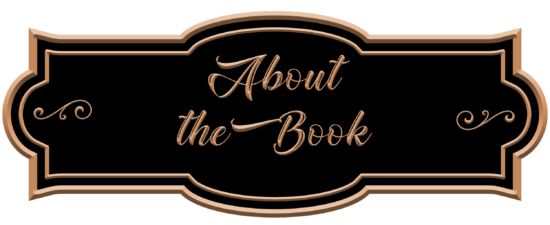
Publication Date: October 26, 2021
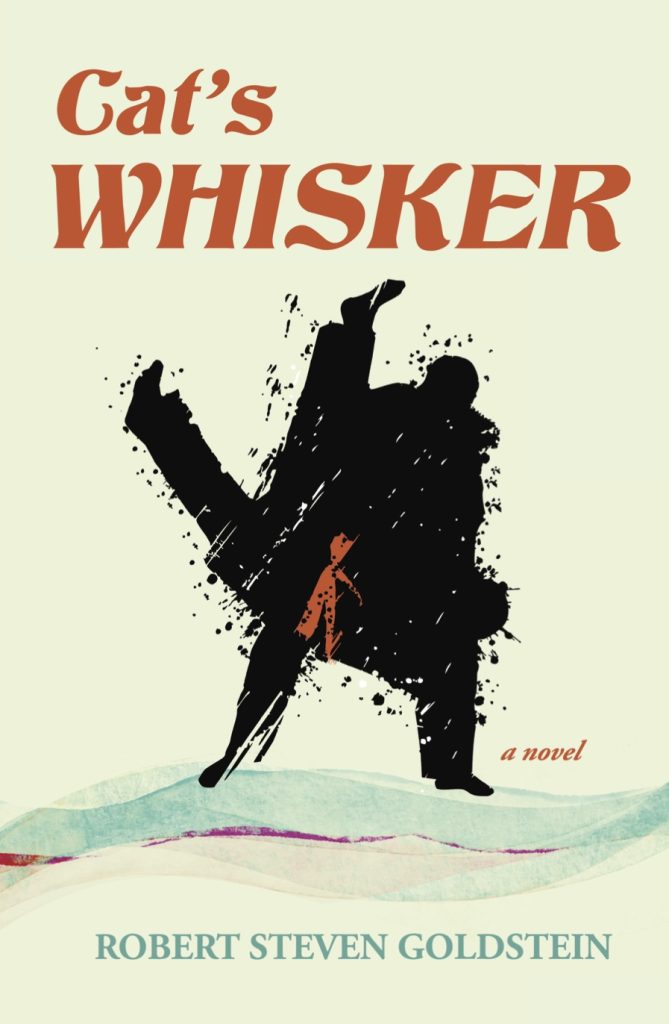 Cat’s Whisker is the story of Samuel Baron, an engineer, inventor, and successful entrepreneur. Trained as a scientist, Baron nonetheless nurtures a lifelong fascination with mysticism and spirituality, investigating themes as varied and interesting as meditation, jiu-jitsu, biology, anthropology, tai chi, and the search for the perfect cocktail. His life is a quest-ultimately a successful one-for a view of the cosmos where science and spirituality don’t just peacefully coexist but are instead intimately bound up as co-equal aspects of an integrated and inspiring reality.
Cat’s Whisker is the story of Samuel Baron, an engineer, inventor, and successful entrepreneur. Trained as a scientist, Baron nonetheless nurtures a lifelong fascination with mysticism and spirituality, investigating themes as varied and interesting as meditation, jiu-jitsu, biology, anthropology, tai chi, and the search for the perfect cocktail. His life is a quest-ultimately a successful one-for a view of the cosmos where science and spirituality don’t just peacefully coexist but are instead intimately bound up as co-equal aspects of an integrated and inspiring reality.

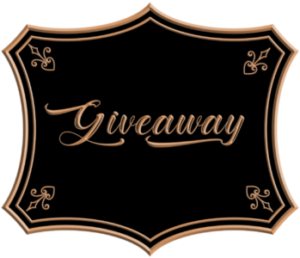
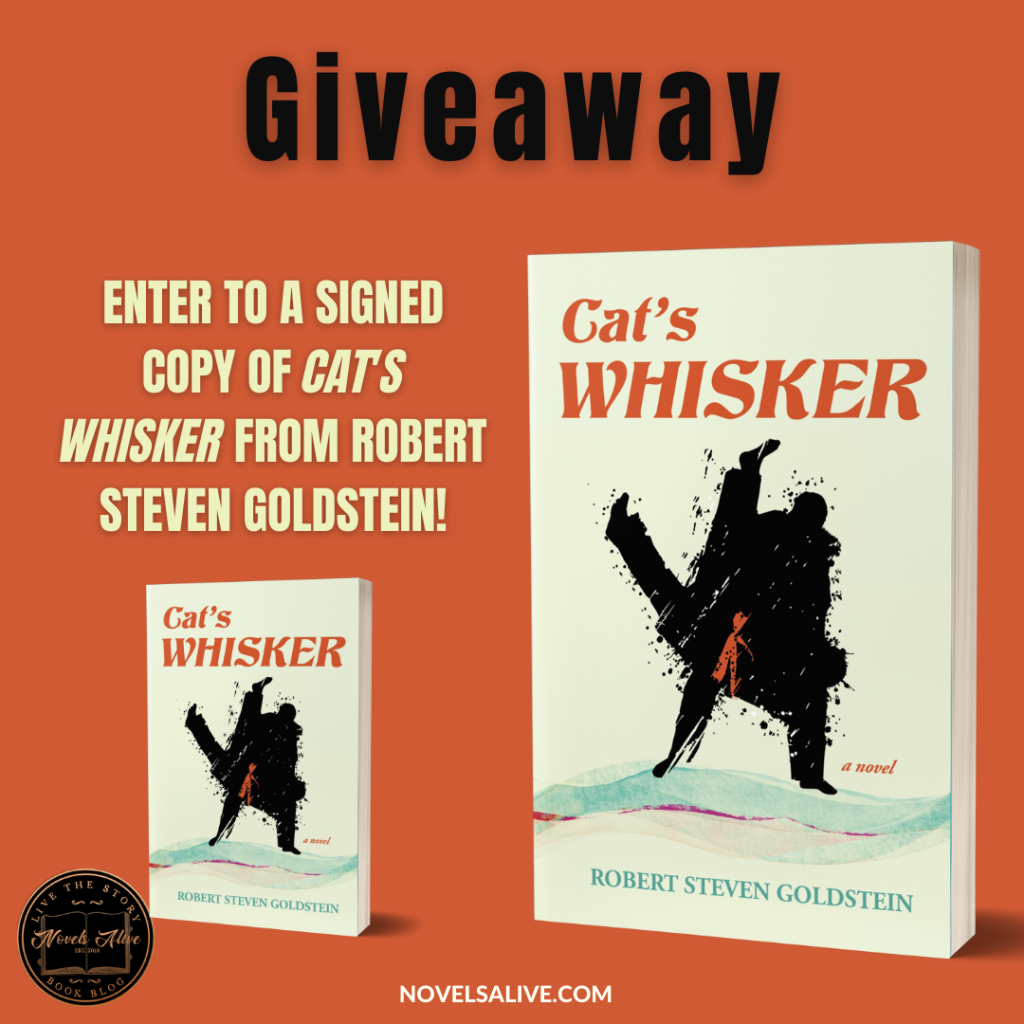
[rafflepress id=”71″]

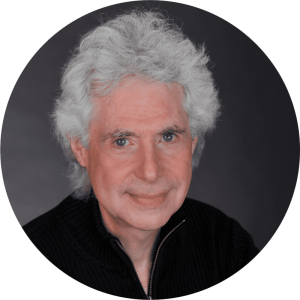 Creating characters and stories—exploring thoughts and ideas. Writing has always captivated me.
Creating characters and stories—exploring thoughts and ideas. Writing has always captivated me.
I learned to read when I was three years old and began writing stories almost immediately after that. At the age of seven I had a poem published in my elementary school newspaper. When I was a senior in high school I took first prize in Scholastic’s national short story contest with a tale called “Fumatorium.” And in college I majored in English Literature and Creative Writing, and published a couple of articles in trade journals as well.
My writing career appeared to be off to a terrific young start. But I knew I wasn’t ready. I hadn’t lived. The confidence, maturity, self-discipline, and wisdom I’d need to write the kinds of books I wanted wasn’t yet there.
And writing was certainly not a reliable way to make a living.
I read an article—it was probably back in the early 1970’s just after I finished college. It posed this question: how many people in the United States make a living solely from writing fiction? The article’s author found only seventy-five people in the entire country who did. I recognized the names of many of them, and their books were not the sort I wanted to write.
I had begun practicing yoga, meditation, and vegetarianism in my junior year of high school, when I was sixteen. When I graduated from college I considered teaching yoga as a profession, but it didn’t seem viable, so I started working full-time in offices instead. In 1974, I began as a mail boy, making five-hundred dollars a month. Thirty-five years later I was a corporate vice-president specializing in medical information technology. I had also done executive level consulting in that same field. People considered me successful in my career, and although I appreciated their praise, I knew I was a writer—I was just playing the role of a corporate executive for now.
In 2008, I turned fifty-six years old—and I finally felt ready. So I retired early and began writing novels.
The plan I had hatched, somewhat naively in my early twenties—work hard, live frugally, invest wisely, and retire early to write novels without worrying about how many copies they sold—had actually worked. Nearly everyone along the way had told me it wouldn’t—they said I’d never save enough—but even if I did, that I would surely have lost the internal fire to write by then.
I hadn’t.
My first novel, The Swami Deheftner, about the problems that ensue when ancient magic and mysticism manifest in the twenty-first century, developed a small cult following in India. This may sound odd, but it actually makes a bit of sense. The book’s main character is critical of contemporary yoga as taught in the United States, and tries stubbornly to resurrect ancient yoga as practiced for centuries in India.
My second novel, Enemy Queen, was published by SparkPress in May, 2020. In it, a young woman initiates passionate sexual encounters with two articulate but bumbling and crass middle-aged men. But what the woman demands in return soon becomes untenable. A short time later she goes missing, prompting the county sheriff to open a murder investigation. This plotline may sound like a radical departure from my first novel—but in reality, the books have many themes in common. This one just weaves a tale which is a good deal more lighthearted and roguish. Enemy Queen was named a finalist in the category of Cross Genre Fiction for the International Book Awards.
Cat’s Whisker, my third novel, was published by Koehler Books in October, 2021. An excerpt from it entitled “An Old Dog” was featured in the fall 2018 edition of the literary journal Leaping Clear. The book’s main character embarks upon a lifelong quest to merge science and spirituality in his day-to-day sensibility—not just so that the two coexist—but such that they merge into a unified and powerful gestalt.
My fourth novel, Will’s Surreal Period, about the peripatetic machinations of a dysfunctional family, will be published by SparkPress in June, 2022.
In my private life, I still practice yoga, meditation, and vegetarianism, and have done so now for over fifty years. That, along with my persistent efforts to live as ethically and compassionately as I am able, forms the core of my personal spiritual discipline.
I live in the beautiful city of San Francisco with my wife of thirty years. She is my soulmate, and her love makes everything possible for me. We currently have a wonderful dog named Cali, but over the years we’ve shared our home with various dogs, cats, rabbits, and parrots, each of whom displayed a unique and vibrant personality, startling intelligence, and a profound capacity for love. And along the way there was also one turtle my wife rescued from a Vietnamese grocery. She had bought a bunch of vegetables, and while checking out, the turtle kept stretching its head out of its slotted wood crate, trying to touch her thigh. My wife asked how much for the turtle. “Five dollars—makes good soup,” was the response. She named him “King Turt,” and he loved playing in our garden as he lived out the rest of his years.















Sounds like a great book.